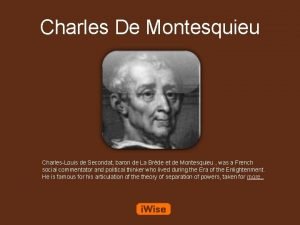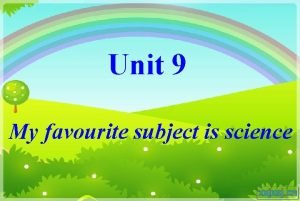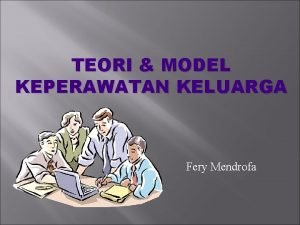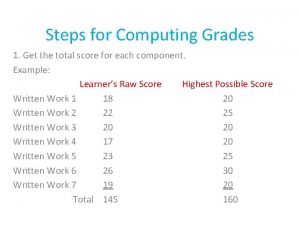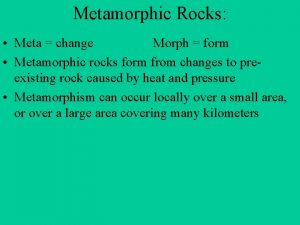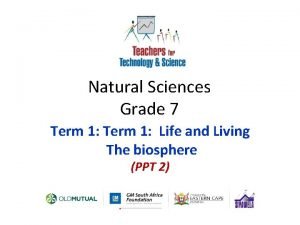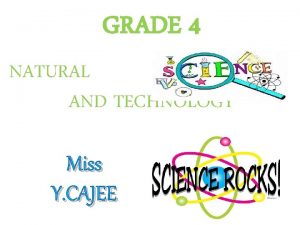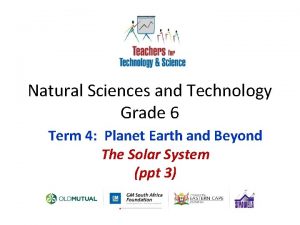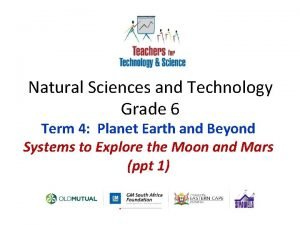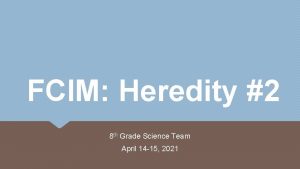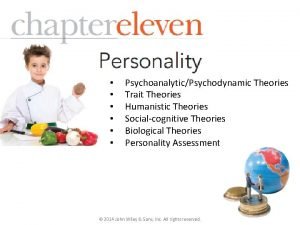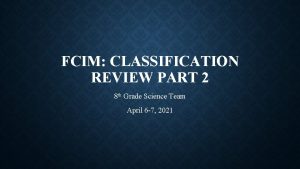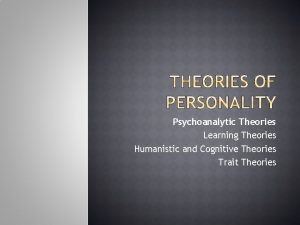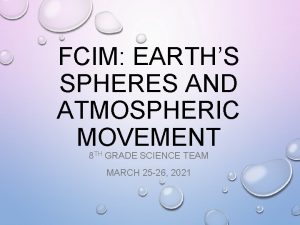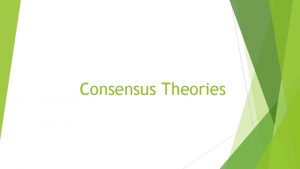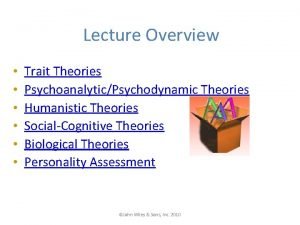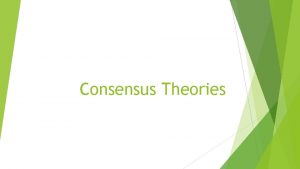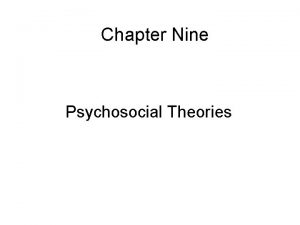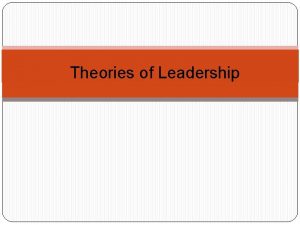FCIM Theories and Laws 8 th Grade Science















- Slides: 15

FCIM: Theories and Laws 8 th Grade Science Team April 22 -23, 2021

Warm-up SSA Review Questions – Day 7

ESSENTIAL QUESTION: How can you differentiate between scientific theories and laws? Scientific Theories and Laws SC. 7. N. 3. 1 Recognize and explain the difference between theories and laws and give several examples of scientific theories and the evidence that supports them.

Question to Ponder A scientist spends a month observing two prairie animals, prairie dogs and ferrets, in their natural habitat. Based on his observations, the scientist states that ferrets are more active than prairie dogs. Why is his statement NOT a scientific theory? a) It is an observation of something in nature. b) Prairie dogs and ferrets are different species. c) The statement is not widely accepted and supported by sufficient evidence. d) The scientist has not conducted enough trials to draw a valid conclusion.

Ted ED Video Have students watch the Ted. Ed video: What’s the Difference between a Scientific Law and Theory? By Matt Anticole (5: 11 minutes) at: https: //www. youtube. com/watch? v =Gy. N 2 Rhbhi. EU

I DO Guided Notes

TRUE? OR FALSE? “If a hypothesis is supported, it becomes a theory. If a theory is proven it becomes a law”. FALSE: Theories and Laws are different ways to look at how the world works. Theories don’t become laws and laws don’t become theories.

Scientific Theories explain how a natural phenomenon works. Theories are the best explanation for a phenomenon with all of the available evidence. Theories can change when new evidence is presented. Examples of common theories: Theory of Plate Tectonics Theory of Evolution Cell Theory Atomic Theory

Scientific Laws Scientific laws describe a natural phenomenon or relationship that always occurs under specific conditions. They can often be represented mathematically and provide no explanation why a phenomenon occurs. Examples of Laws: o. Law of Universal Gravitation o. Law of Superposition o. Laws of Conservation of Mass & Energy

Scientific Theories vs Laws Both scientific theories and scientific laws are based on the results of many investigations, are supported by a large amount of evidence, are widely accepted by the majority of scientists in the given field of study, and can be modified as new evidence is discovered.

Revisiting the Question to Ponder A scientist spends a month observing two prairie animals, prairie dogs and ferrets, in their natural habitat. Based on his observations, the scientist states that ferrets are more active than prairie dogs. Why is his statement NOT a scientific theory? a) It is an observation of something in nature. b) Prairie dogs and ferrets are different species. c) The statement is not widely accepted and supported by sufficient evidence. d) The scientist has not conducted enough trials to draw a valid conclusion.

Laws, Theories, or Both Activity

Class Activity Go to the Laws, Theories, or Both Handout Complete the handout Place your responses in today’s chat (Ex. Laws: 1, 2, 3 Both: 1, 2, 3, Theories: 1, 2, 3) Once everyone responds, we will go over the correct answers!!

Laws, Theories, or Both Handout Answers Scientific Theory Both 5. Explains how a natural phenomenon works 1. Based on the results of many investigations 8. Often explains more related phenomena over time 2. Can be modified if new evidence refutes the current statement Scientific Law 4. Describes a natural phenomenon or relationship that always occurs under specific conditions 7. Often can be represented by a mathematical Formula 10. Supported by a large amount 9. Provides no explanation as to of empirical evidence why a phenomenon occurs 11. Widely accepted by the majority of scientists within a given field of study 3. Cannot be validated by a single person 6. Often becomes more limited over time

Class Assignment Penda Theories Versus Laws Review (3 assignments) Scientific Theories and Laws (Developing) Scientific Theories and Laws (Achieving) Scientific Theories and Laws (Exceeding)
 Useless laws weaken the necessary laws
Useless laws weaken the necessary laws My favourite subject is english because
My favourite subject is english because Family social science theories
Family social science theories How to compute initial grade
How to compute initial grade Culinary
Culinary Metamorphic grade
Metamorphic grade Natural sciences and technology
Natural sciences and technology Natural science grade 5 metals and non metals
Natural science grade 5 metals and non metals Natural science grade 7 term 1
Natural science grade 7 term 1 Natural science and technology grade 4 practical tasks
Natural science and technology grade 4 practical tasks Grade 6 natural science term 4
Grade 6 natural science term 4 Matter and materials grade 6
Matter and materials grade 6 Natural science and technology grade 6 term 1
Natural science and technology grade 6 term 1 What is solute in science grade 7
What is solute in science grade 7 Technology grade 7 term 3
Technology grade 7 term 3 Natural science grade 6 term 4
Natural science grade 6 term 4
